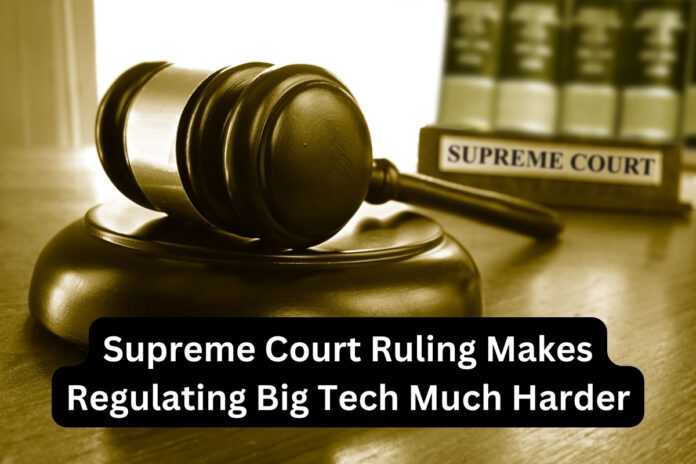The Supreme Court’s recent decision weakens the government’s ability to control Big Tech companies.
Why it matters: Groups hoping to limit the power of tech giants will need new strategies.
The court’s decision: It throws out a legal principle (“Chevron deference”) that allowed Congress to set broad goals and let agencies figure out the details. This was especially helpful for complex areas like technology.
What it means: Now, laws need to be extremely specific, making it harder to regulate fast-changing tech. Courts, not agencies, will decide if regulations are legal, potentially favoring big companies with more resources for lawsuits.
Losers: Public interest groups and the public itself. Passing new tech regulations will be much more difficult.
Winners: Big Tech companies. They can keep expanding their power with less government oversight.
The future: Those who want to limit Big Tech’s influence may need to find new ways to do so, like focusing on collective action and alternative systems.

